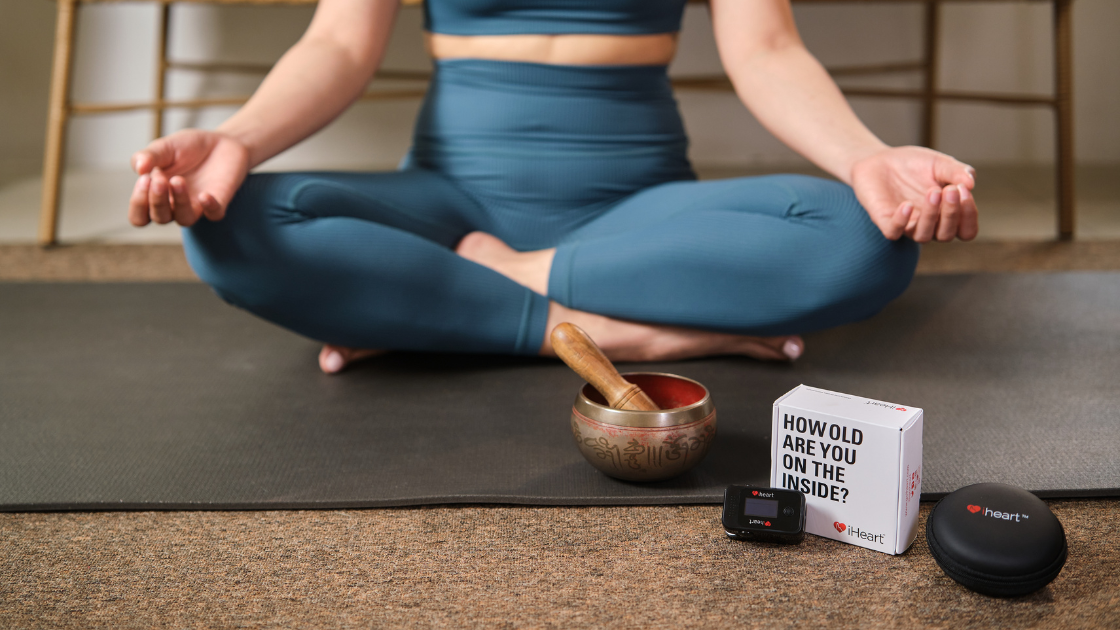One of the most frightening parts of getting older is the possibility of cognitive decline. Many of us have been touched by the effects of dementia in some way, whether through a friend, relative, or loved one. It can be heartbreaking to watch someone you know slip into cognitive decline and give up the independence they once enjoyed. It can also make our own moments of memory loss, confusion, or forgetfulness all the more concerning.
If you’re worried about developing dementia and want to protect yourself, take heart. While we cannot control our genetics, cognitive decline can be slowed, and in many cases prevented, with proper lifestyle choices.
In this blog post, we’re going to dig into what causes dementia, and what you can do to ensure a healthy brain as long as possible.
The connection between dementia and aortic stiffness
You may have heard that risk factors for dementia include smoking, obesity, high blood pressure, poor diet, and lack of exercise. While this is true, these factors all contribute to one thing in particular: increased aortic stiffness (loss of elasticity in the aorta).
As the largest artery in the body, the aorta is vital to the flow of oxygen and nutrients to the body. A healthy aorta is supple and elastic, allowing the heart to pump blood efficiently. However, the aorta naturally stiffens as we get older.
Research shows a clear link between aortic stiffness and dementia. In fact, one study demonstrated that aortic stiffness is a better predictor of cognitive decline in healthy individuals than blood pressure.¹
Why is this important? That’s because a stiff aorta indicates the loss of flexibility in the other core internal structures. We refer to this loss of flexibility as decreased internal mobility.

Internal mobility and cognitive decline
Good internal mobility means that the core internal structures, including the aorta, spine, and diaphragm, are flexible and functioning youthfully. In a person with good internal mobility, each breath they take acts as an engine of health, massaging internal organs, flexing the spine, and allowing cerebrospinal fluid to flow.
However, poor internal mobility can lead to cognitive decline in two important ways. First, the increased aortic stiffness exposes tiny, fragile blood vessels in the brain to elevated pressure, leading to tears in the blood vessel wall and leading to both clotting and areas of brain cell death (cerebral microangiopathy). These areas of cell death can often be seen in the MRIs of older individuals.
Second, poor internal mobility impedes the flow of cerebrospinal fluid up the spiral column, eventually leading to cognitive decline. Dementia is caused by cell damage and their loss of connections in the brain. Without good flow of cerebrospinal fluid between the brain and spinal cord, the life-supporting exchange of oxygen and nutrients in the brain is hindered, leading to the damage and death of brain cells.

How to prevent cognitive decline
The fact that aortic stiffness can be reversed means good news for those who want to protect themselves from dementia. Although there isn’t much evidence that it’s possible to reverse brain damage, we know that aortic stiffness can be reduced – and internal mobility improved – by healthy lifestyle changes.
One study showed that people who exercised at an average age of 73 showed reduced aortic stiffness five years later. This means that if elderly patients receive high aortic stiffness readings or a marker of brain damage, they may still be able to slow down or prevent dementia.²
If you want to protect your brain from cognitive decline or help a loved one stave off dementia, making smart choices for your health and wellness is key.
The best way to reduce aortic stiffness and improve internal mobility is by prioritizing exercise, a healthy diet, and proper stress management. By building lasting healthy habits and incorporating these changes into your daily life, you’ll be able to protect yourself from cognitive decline and even add years to your life.
Build a healthy future with iheart
Developing good habits to support brain health and practicing them consistently can be challenging. The iheart device and family of apps were designed to help people invest in their health and wellness by giving them helpful internal data and demonstrating a clear connection between lifestyle and whole-body health.
With the iheart Internal Age app, you can quickly and easily assess your aortic stiffness and internal mobility and track improvements as a result of regular exercise and other healthy lifestyle initiatives.
With the iheart Brain app, you can discover revolutionary new insights about the state of your brain. You’ll get real-time feedback on your cognitive health so that you can see how your brain functioning currently stands. As you take regular readings and track your progress, you can visualize how lifestyle choices impact your brain health, and find the motivation you need to create lasting habits that protect your brain and will help prevent cognitive decline.
Sources






Share:
Six Heart Healthy Foods to Enjoy this Fall
3 Tips to Hack Your Stress Levels